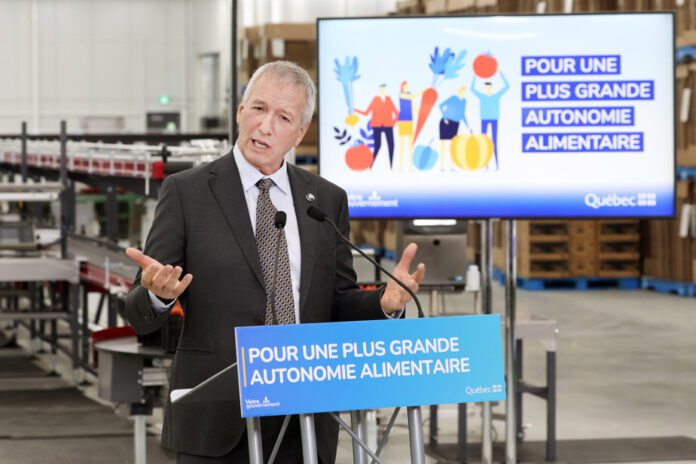(Sainte-Sophie) Quebec continues to increase food self-sufficiency, this time with investments of $175 million over five years as announced in the last budget.
Prime Minister François Legault did not hide that the pandemic had scared him in terms of food. “I remember very well being worried in 2020 when the borders closed,” he said Monday at a press conference in the huge Savoura greenhouses in Sainte-Sophie, in the Laurentians.
Recalling that in Quebec, “about half of what we eat comes from elsewhere, I was under enormous stress to ask myself: if the borders remain closed for a long time, will we be able to feed Quebecers? »
“There is, if only for security reasons, an urgency to ensure that we produce more in Quebec,” he explained.
Of the sum of 175 million, the lion’s share, or 100 million, will go to the food processing sector, in particular for investments in automation and robotization, in order to increase productivity in the context of labor shortages work. Then, 45 million will be spent on plant productivity and the last 30 million will go to greenhouse production.
The Prime Minister’s presence at Sainte-Sophie was also intended to mark the inauguration of the new Serres Sagami complex, erected at a cost of 56 million, including 21 million in public money from the provincial government.
The greenhouse production sector is growing in Quebec. The area has increased, from 2020 to today, from 123 hectares to 190 hectares, an increase of 55%, but the production volume has increased by 85% over the same period.
Alongside the Prime Minister, the Minister of Agriculture, André Lamontagne, was quite proud to say that Quebec is 100% self-sufficient in lettuce, close to 90% in tomatoes and cucumbers and that productions of aubergines and peppers were up sharply.
Obviously, a complete border closure that would even block food – which has never happened during the pandemic – would have a major impact on our plates, but would not be a threat, argued the Prime Minister. “Everyone would eat, but we might not eat as diversely as we eat now,” he said.











